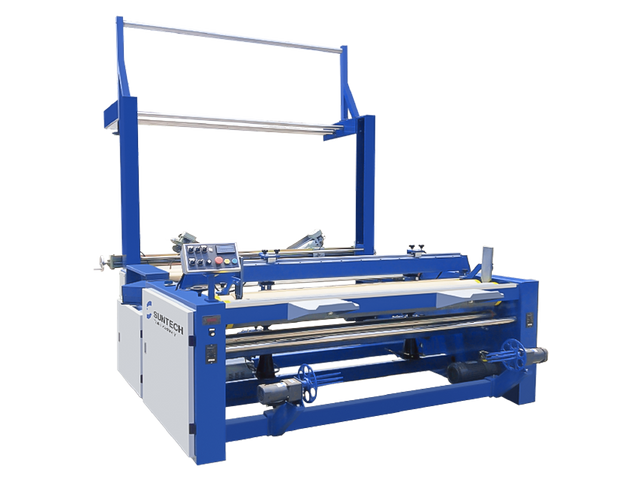In the world of textile manufacturing, achieving precision and efficiency is paramount. One of the most effective ways to ensure this is by customizing your fabric cutting machine. This article delves into the nuances of tailoring your fabric cutting machine for optimal performance, providing you with insights and practical tips to elevate your textile operations.

Understanding Your Fabric Cutting Machine
Before diving into customization, it is crucial to understand the fundamental components and functionalities of your fabric cutting machine. These machines, designed to cut fabric with precision, come with various features such as adjustable blades, automated settings, and software integration. Familiarizing yourself with these elements will serve as a foundation for effective customization.
Assessing Your Cutting Needs
Customization begins with a thorough assessment of your specific cutting requirements. Consider the types of fabrics you work with, the complexity of the patterns, and the volume of production. For instance, cutting delicate silk requires different settings compared to heavy-duty denim. By understanding your needs, you can tailor the machine settings to achieve the best results.
Optimizing Blade Selection and Maintenance
The blade is the heart of any fabric cutting machine. Selecting the right blade type and maintaining it properly is essential for peak performance. For example, rotary blades are ideal for intricate patterns, while straight blades are better suited for long, straight cuts. Regularly sharpening and replacing blades ensures clean cuts and extends the machine's lifespan.
Leveraging Software and Automation
Modern fabric cutting machines often come equipped with advanced software and automation features. These tools can significantly enhance precision and efficiency. Customizing software settings to match your cutting patterns and fabric types can streamline operations. Additionally, automation reduces human error and speeds up the cutting process, allowing for higher productivity.
Calibrating Machine Settings
Calibration is a critical aspect of customizing your fabric cutting machine. Adjusting parameters such as cutting speed, pressure, and blade depth ensures that the machine operates at its best. For example, cutting through multiple layers of fabric may require higher pressure and slower speed to maintain accuracy. Regular calibration checks help maintain consistency and quality in your cuts.
Implementing Safety Measures
While customizing for performance, it is equally important to prioritize safety. Ensure that all safety features, such as blade guards and emergency stop buttons, are functional and accessible. Proper training for operators on the customized settings and safety protocols is essential to prevent accidents and ensure a safe working environment.
Continuous Improvement and Feedback
Customization is an ongoing process. Regularly seek feedback from machine operators and monitor the performance of your fabric cutting machine. Identify areas for improvement and make necessary adjustments. Staying updated with the latest advancements in fabric cutting technology can also provide new opportunities for customization and enhancement.
Conclusion
Tailoring Success: How to Customize Your Fabric Cutting Machine for Peak Performance is an evolving journey that requires a deep understanding of your machine, meticulous assessment of your needs, and continuous optimization. By following the tips outlined in this article, you can achieve precision, efficiency, and safety in your textile operations. Embrace the power of customization and elevate your fabric cutting process to new heights.








